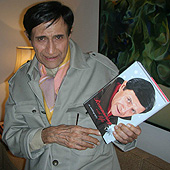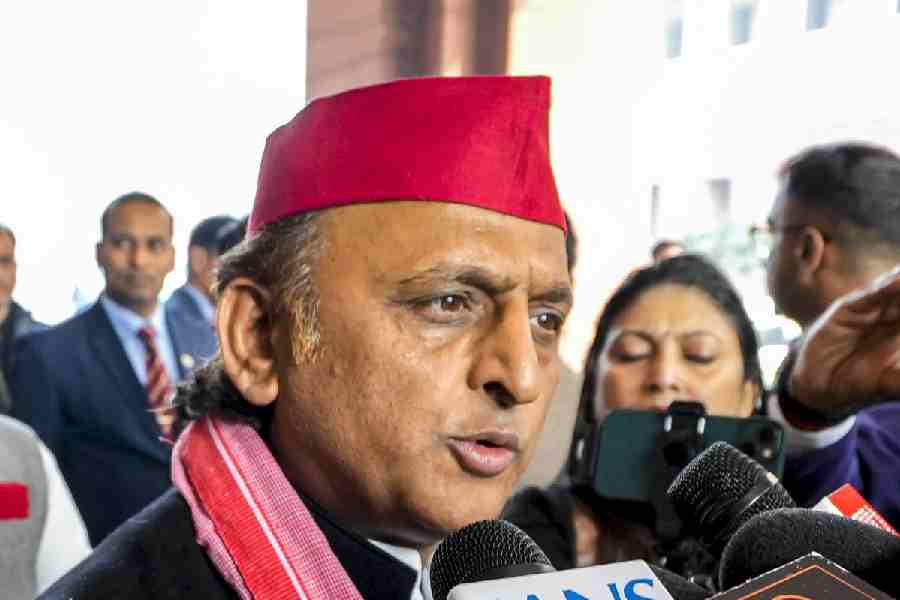 |
The year is 1943 and a youth of 19, with Rs 30 in his pocket, jumps onto the Frontier Mail at Lahore headed for Bombay, his “city of dreams.” He is upset that his father found the money for his elder brother’s further education but cannot let him stay on at college to do an MA in English. So to Bombay he heads, determined to be a movie star. What the youth does not know is that within four years, India will be partitioned and it will be more than half a century before he is able to return to Lahore where he had studied BA (Hons) in English at Lahore Government College. The building and even the colour of the principal’s door would be the same, yet the world would have changed beyond recognition in the intervening period.
“I went back to Lahore after 55 years with Atal Bihari Vajpayee as our Prime Minister on the famous (friendship) bus ride,” says Dev Anand. “Nawaz Sharif was there; he was prime minister of Pakistan.”
A few hours before me, Nawaz Sharif, now based in the UK, had dropped in to see Dev Anand at his London hotel. The actor is giving the first in-depth interview about his autobiography, Romancing With Life, which Manmohan Singh is due to release in Delhi on September 26, the author’s 84th birthday. Sonia Gandhi may be present too.
His has been a remarkable career, stretching 61 years and still counting, which Penguin has squeezed into 465 pages. After further releases in Mumbai, Calcutta, Chandigarh, Bangalore, Chennai, Stockholm, Frankfurt (for the Book Fair), Dev Anand will be back in London for an October 13 launch.
He is proud he wrote it all himself, in long hand. That he studied English at college and attended the Sacred Heart Covent in Dalhousie explains why his language is fluent. It remains to be seen how good the book is but his career, going from Hum Ek Hain (1946) and taking in Aandhiyan (1952), Rahi (1953), Hum Dono (1961), Guide (1965), possibly his most memorable film, Jewel Thief (1967), Hare Rama Hare Krishna (1971) to Charge Sheet, an English language movie he is planning to shoot later this year under his Navketan banner, coincides with the history of contemporary India from the moment he boarded that Frontier Mail.
Partition, he is convinced, was not only “one of the most tragic acts that ever took place in the world” but a huge mistake. Born Dharamdev Pishorimal Anand (the name was later shortened to Dev Anand), the son of a scholarly lawyer, in Gurdaspur, Punjab, on September 26, 1923, he says his contemporaries did not take talk of Partition seriously.
“When we were kids the word went around that there was going to be the creation of a country called Pakistan,” he remembers, his grasp of facts, figures and dates still impressive. “We wondered, ‘What is Pakistan?’ We all thought it was a big joke.”
He recognises the reality that Partition cannot be rescinded. “Today, the new generation in Pakistan, they are Pakistanis.”
When he returned to Lahore on Vajpayee’s friendship bus, one of his Pakistani fans kept playing songs from his films on a flute. “I was touched. I asked his name. His name could have been the name of any Indian man. Same language, same faces, same expressions, same culture.”
In Gurdaspur, there were no cinema theatres. So he had to wait before he got to Lahore before he could see films. He saw Clark Gable in Gone With the Wind and The Great Dictator, the satire on Hitler by Charlie Chaplin whom he would meet in Montreux in 1954 (on his way to the Soviet Union which had taken to Raj Kapoor’s Awara and a couple of his own movies with huge enthusiasm).
In Bombay, he remembers his first and only sighting of Gandhi leading a prayer meeting on a Juhu beach just as the sun was slipping into the Arabian Sea. On the very day that he was feeling very pleased with himself following the purchase of his first car, a Hillman Minx, came the shocking news of Gandhi’s assassination. “In the studio, they said there’s no shooting because Mahatmaji is dead. There was big gloom everywhere.”
Dev Anand tells me of his meetings with Jawaharlal Nehru (the prime minister once called Dev Anand, Dilip Kumar and Raj Kapoor, the big three, to his home not long before he died) and with Indira Gandhi, who said little but listened carefully. Though it was a risk, Dev Anand was one of the first in the film industry to oppose her Emergency. He never met Rajiv Gandhi but he can now sense Rahul Gandhi being groomed for the top job — “they are building him, I can see that, but only time will tell. If he has merit, there’s no reason why he should not be there. But merit has to be very, very important.”
He knows that writing an autobiography means he has to be honest. The book won’t work if it is seen to be simply a catalogue of his successes. “I have tried my best to be honest,” he assures me. “That’s why it was very, very tough. My life is an open book so if I didn’t write about those things, people will feel cheated.”
“Those things” include a reference to his relationship when he was young with the actress-singer Suraiya.
“People know of my love affair with Suraiya, it’s there, very much there, people will find in the book a lot of aspects of it they do not know,” he confides. “When I joined I was new, she was big. She was moving in a Buick or a Lincoln and I was travelling by train. She was a big singing star.”
Was she beautiful? His answer is philosophical: “Stardom makes you look beautiful. When you are a star, stardom is your look. Your singing talent is your look. She had beautiful eyes, she was young; she was a nice person and we got friendly with each other very quickly. But she was a total prisoner of her family. She was never an independent girl. I did love Suraiya. It was my first calf love, I cried for her. I did not get her, I am glad I didn’t get her because the course of life would have been different.”
By all accounts and especially his own, it has been quite a life even though he maintains, “Stardom lasts for only five to six years, 10 maximum.”
Dev Anand’s enthusiasm is infectious. “I have lovely chapters about England and America,” he tells me.
After a two hour conversation, he is keen to carry on. “It is a book of a man who is alive. And things are still happening.”










